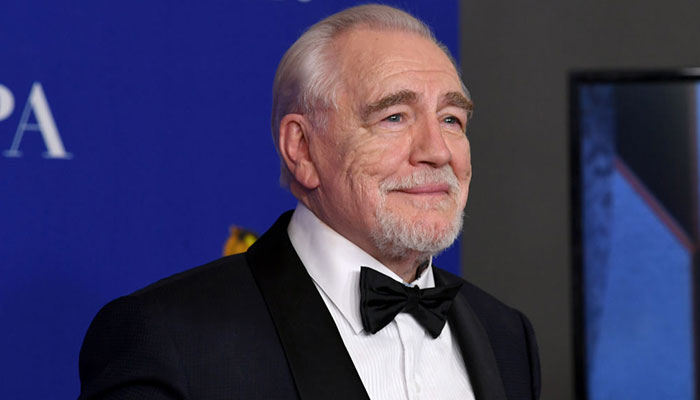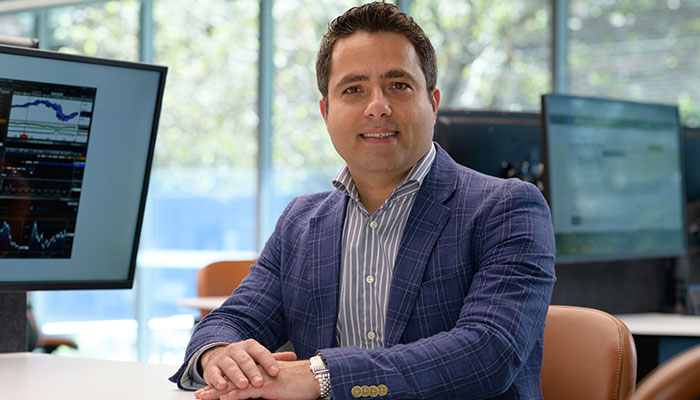Millions of viewers around the world tuned in to watch – and indulge in a little schadenfreude – as the Roy family battled for control of global company Waystar RoyCo across four seasons of the drama Succession.

Family feud: Actor Brian Cox, pictured, plays ruthless media mogul Logan Roy in the TV drama Succession, which explores a family battling for control of the patriarch's fortune and influence.
But for Professor Francesco Chirico, from the Department of Management at Macquarie Business School, there are parallels for real-world small to medium enterprises (SMEs).
"Succession may have been fictional, but it was spot-on about the chaos that can follow when a business has no clear succession plan,” says Professor Chirico. "The family conflicts, secrecy and confusion around who should take over can be all too real,” Professor Chirico says.
Research published earlier this year in the Journal of Management Studies titled The king is dead - long live who?, was conducted by Professor Chirico and researchers from Boston’s Northeastern University, the University of Bern in Switzerland and Sweden’s Jönköping University, and examined the consequences for SMEs following the sudden death of the CEO-owner.
“Our study of more than 400 Swedish SMEs shows that when the CEO-owner dies suddenly, the firm’s financial health often worsens before it improves,” Professor Chirico says.
“In specific cases of unplanned succession, non-family CEO successors tend to cause less financial distress in the short term because they are often more emotionally detached and decision-focused,” Professor Chirco says.
Succession is not just a leadership issue. It’s about resource continuity, emotional stability and organisational resilience.
But, in the long term, family CEO successors usually do better because they bring commitment, continuity and deeper stakeholder trust, especially once the grief period has passed.
“We also found that successors who were already embedded in the firm [those who had spent time inside the company and knew its operations] performed better in both the short and long-term. It's not just who you choose, but also how well they know the firm,” Professor Chirico says.
“The best-case scenario is a family CEO successor with deep experience in the company. The worst-case scenario is a family CEO successor with no company experience.”
Plan or pay the price
Professor Chirico says the presence or absence of a succession plan makes all the difference. He cites the experiences of two companies – one Australian and one American - to demonstrate the difference.

Art meets life: Professor Francesco Chirico, pictured, says his research shows there are lessons to be learned from the TV drama Succession about future planning for real-world small to medium enterprises.
Complete Office Supplies (COS) is an exemplar of good planning. COS is Australia’s largest family-owned and operated office and education supplies business, with annual revenue exceeding $300 million, more than 600 employees and warehouses in every state.
“Dominique Lyon, the company’s founder, passed away unexpectedly last year, but he and his two daughters had the foresight to prepare a succession plan,” Professor Chirico says. “The daughters were named as co-CEOs years in advance and Dominique became the chairman of the company. As a result, the transition was smooth and the business has thrived.”
An alternative example and outcome is that of Scholastic Corporation, a century-old US company and one of the world’s largest publishers of children’s books, including the Harry Potter novels.
“The Scholastic case is a real-life reminder of how succession surprises can unsettle a business,” says Professor Chirico. “When CEO and owner Richard Robinson died, control of the company went not to his children but to a senior executive, an event that shocked both the family and the board," Professor Chirico says.
“These examples illustrate a key point from our research: succession without transparency or communication can erode trust and create internal turmoil, especially in family firms,” says Professor Chirico. “The result is often real-life drama with very real consequences for relationships, as well as company stability and performance.
“Succession is not just a leadership issue. It’s about resource continuity, emotional stability and organisational resilience,” says Professor Chirico. “Our study shows that financial distress gets worse before it gets better, but the right successor can flatten that curve and speed recovery.”
Professor Chirico's tips for succession planning:
1. Start early: Even if the topic is uncomfortable, plan succession well before it is needed.
2. Involve the board or advisors: Independent guidance can help make the process fair and transparent.
3. Consider both family and firm embeddedness: The best successors are trusted by the family and are familiar with the business.
4. Document key knowledge: Make sure that knowledge isn’t lost with the CEO-owner.
Professor Francesco Chirico is a Professor of Strategy and Family Business in the Department of Management and Co-Director of the Macquarie University Innovation, Strategy and Entrepreneurship (ISE) Research Centre.



